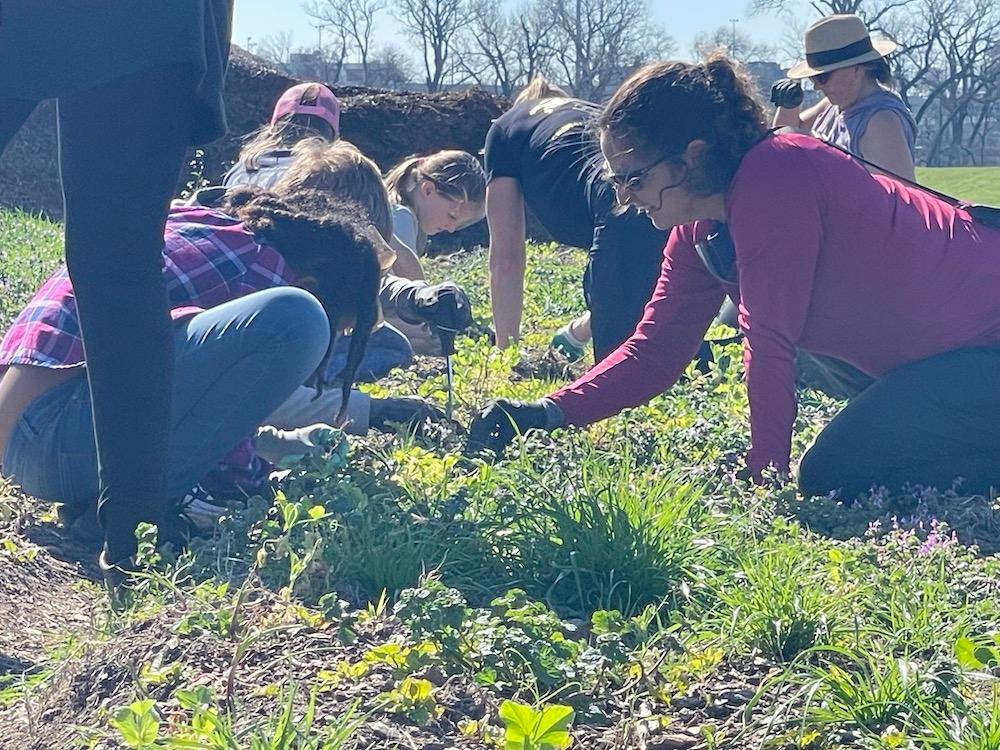Every fallen leaf, apple core, and wilted flower has a second life waiting underground. Beneath the surface, decomposers—worms, fungi, microbes, and insects—work in quiet cooperation to turn waste into nourishment.
Without them, the world would drown in debris. With them, life renews itself every day.
🪱 The Invisible Workforce Beneath Our Feet
If you could shrink small enough to walk through a handful of soil, you’d find a bustling city: tunnels lined with worm castings, fungal threads glowing faintly white, bacteria pulsing with chemical energy.
These unseen workers recycle everything that dies or decays, transforming it into nutrients plants can use again. Decomposition isn’t an ending—it’s nature’s most important beginning.
🌱 Every healthy ecosystem runs on this hidden economy of renewal.
🐛 Meet the Key Players
- Worms – Nature’s engineers. They tunnel through the soil, improving airflow and leaving behind castings rich in nitrogen and minerals.
- Fungi – The networkers. Their mycelium webs connect plant roots and release enzymes that break down wood and leaves.
- Bacteria & Microbes – The chemists. They work on the tiniest level, decomposing organic matter into nutrients plants can easily absorb.
- Insects & Arthropods – The shredders. Beetles, millipedes, and pill bugs break down bigger debris so microbes can finish the job.
Together, they form the living foundation of soil—an ecosystem beneath every ecosystem.
🍂 Why Decomposition Matters
Decomposers don’t just clear clutter. They build fertile soil, store carbon, and keep the planet’s nutrient cycle in motion. Without them, ecosystems would grind to a halt.
Healthy decomposition means:
- Plants grow stronger and need less fertilizer.
- Soil holds more moisture and resists erosion.
- Climate resilience improves through carbon storage.
For teachers and homeschoolers, decomposition connects directly to Texas TEKS standards on ecosystems, soil formation, and life cycles. It’s a perfect real-world example of how science and stewardship intertwine.
🌾 See Decomposers in Action
The best way to understand decomposition is to dig into it—literally.
At Ridglea Giving Garden in Fort Worth, visitors explore living soil in hands-on classes like:
- 🪱 Soil Scientist – Students uncover worms, microbes, and organic matter in different soil layers.
- 🍃 Composting Made Easy – A practical introduction to turning everyday scraps into rich, usable compost.
Guests often find surprises: delicate fungal filaments, quick-moving pill bugs, or the earthy scent of active compost. What feels like decay soon looks like a miracle of transformation.
🧭 Want to experience it firsthand? Visit a local garden or book a class through Delve to see what’s really happening below the surface.
🌍 Create Your Own Decomposer Habitat
You don’t need a full farm to support decomposers—just curiosity and a little patience. Try starting with:
- A worm bin: Red wigglers thrive in classrooms or kitchens.
- A compost pile: Alternate greens (fruit and veggie scraps) and browns (dried leaves, paper, or straw).
- Leaf litter: Let one garden corner stay messy. It’s home to beetles, fungi, and soil microbes.
Avoid meat, dairy, or oily foods, and keep compost moist but not soggy. Over time, you’ll watch banana peels and leaves become rich, dark soil.
🌿 From Decay to Renewal
There’s a quiet beauty in watching something break down and become part of life again. Kids see that “rot” isn’t the end—it’s a handoff from one generation of life to the next.
Once you start noticing decomposers, you’ll see the world differently. Soil becomes a living community, and every crumb of compost a reminder that nothing in nature is wasted.
🪴 The smallest creatures keep the biggest promises—renewal, resilience, and the rhythm of life itself.
❓ FAQs: Decomposers in the Soil
What are decomposers?
Decomposers are living organisms—like worms, fungi, bacteria, and insects—that break down dead plants and animals into simple nutrients. This process returns energy to the soil and fuels new growth.
Why are decomposers important in soil?
They keep the nutrient cycle moving. By turning organic matter into usable minerals, decomposers help plants grow stronger, enrich soil structure, and prevent waste from building up in nature.
Are worms decomposers?
Yes. Worms are one of the best-known decomposers in gardens. As they tunnel through soil, they eat decaying matter and leave behind castings rich in nitrogen and beneficial microbes.
How do fungi help with decomposition?
Fungi release enzymes that break down wood, leaves, and other tough materials. Their underground networks—called mycelium—spread through the soil, connecting with plant roots and helping share nutrients and water.
Can I see decomposers in my garden?
Absolutely. Turn over a shovel of compost or peek under mulch, and you’ll spot worms, pill bugs, millipedes, and fine white fungi threads. Each one plays a role in keeping your garden’s soil healthy and alive.
📚 Related Reading
- Exploring the Garden Ecosystem in Fort Worth (Field Trip)
- Composting Made Easy Workshop (Ridglea Giving Garden)
- Soil Scientist Class (Ridglea Giving Garden)
- What’s Really in Your Soil? Surprising Things Kids Learn When They Dig
- The Secret World of Fungi: How Urban Mushroom Farms Grow Food Without Soil or Sunlight





